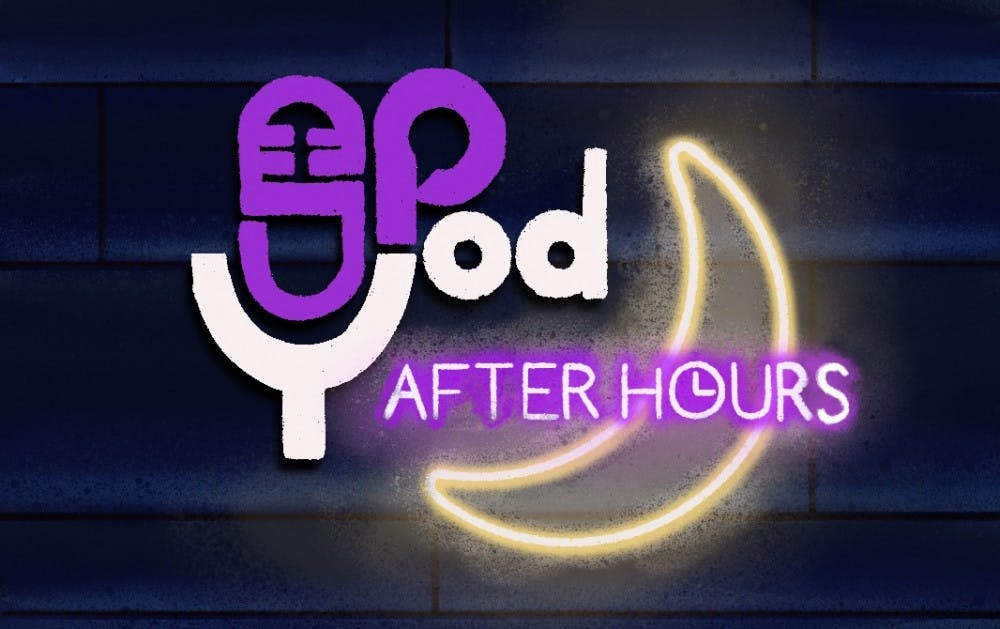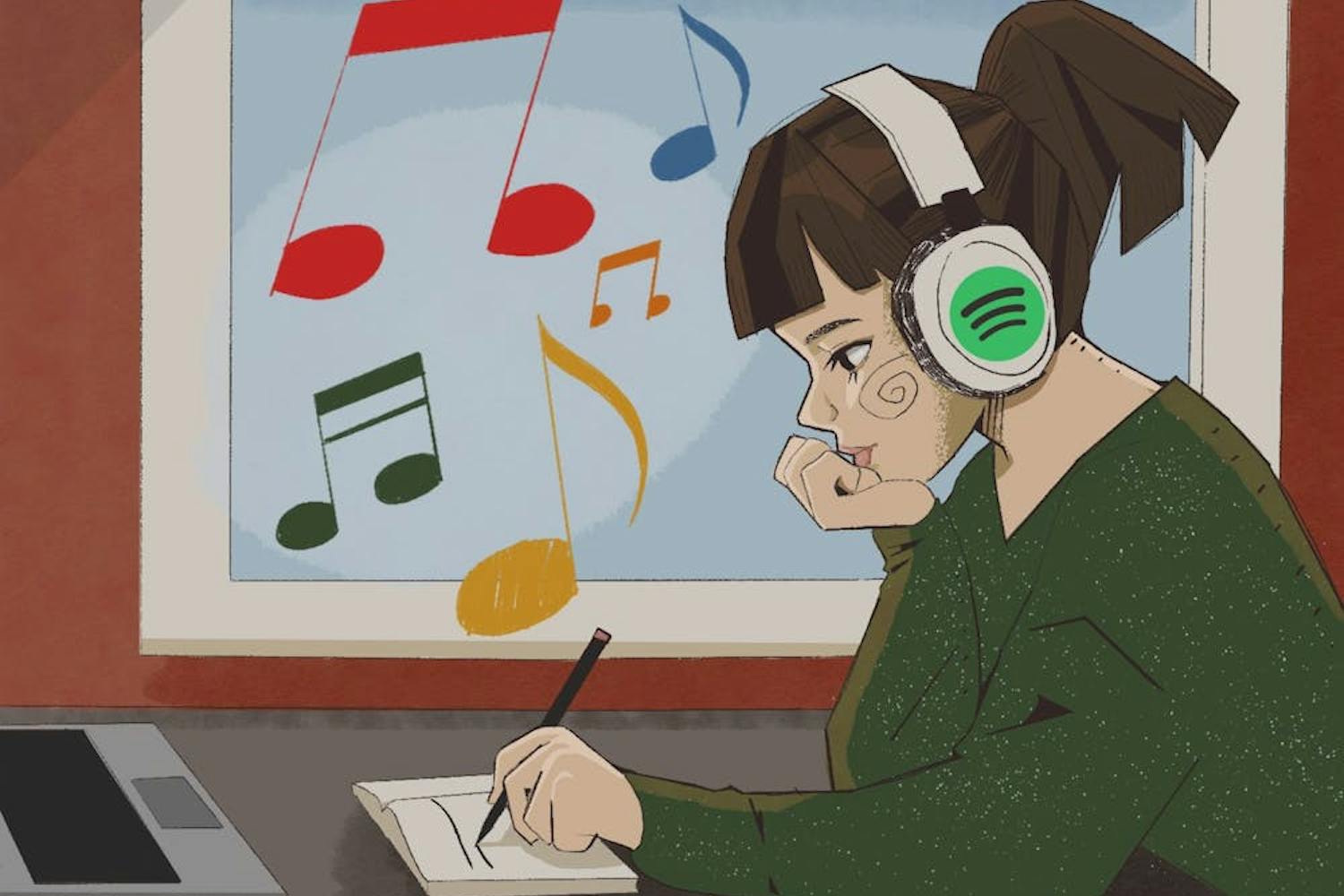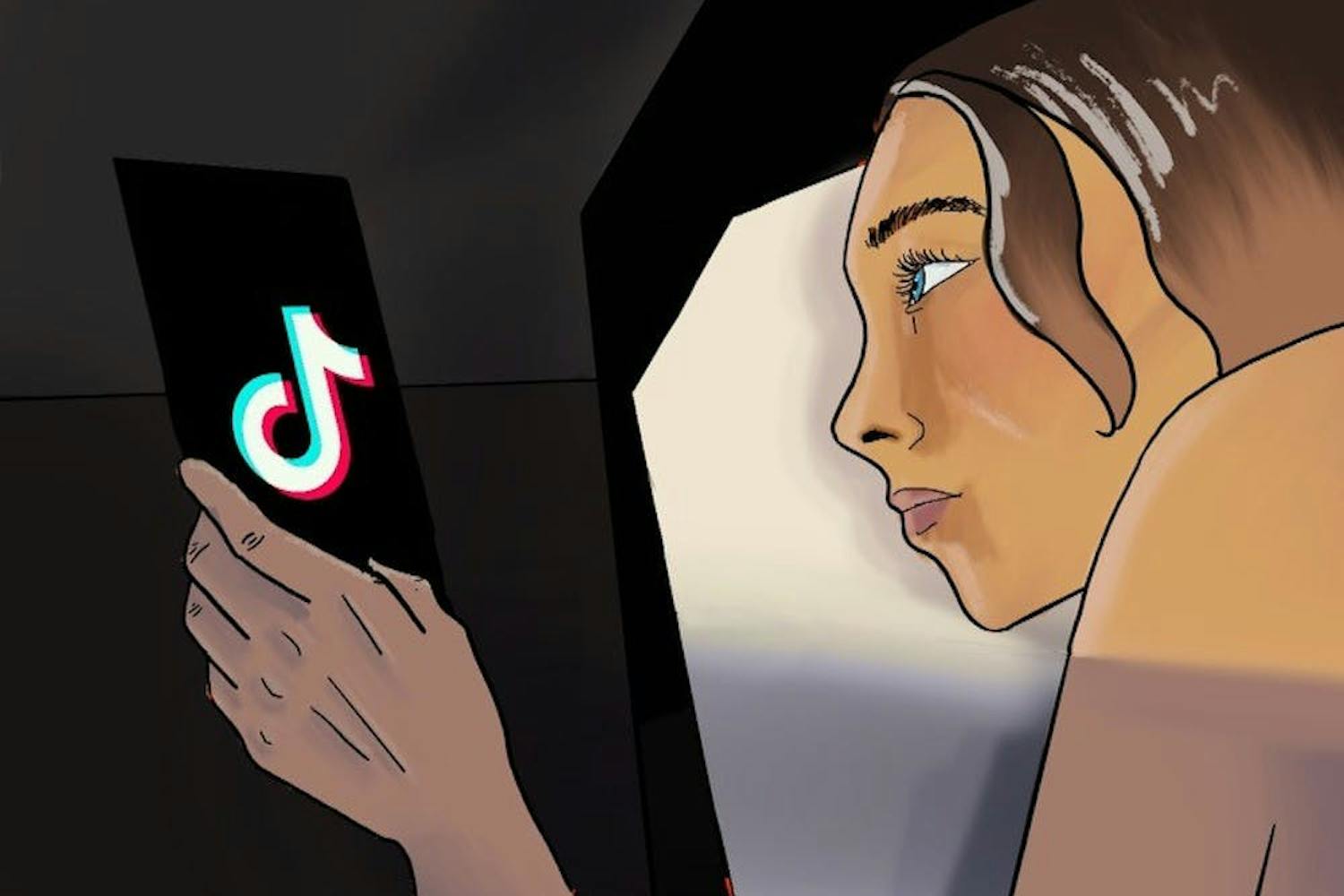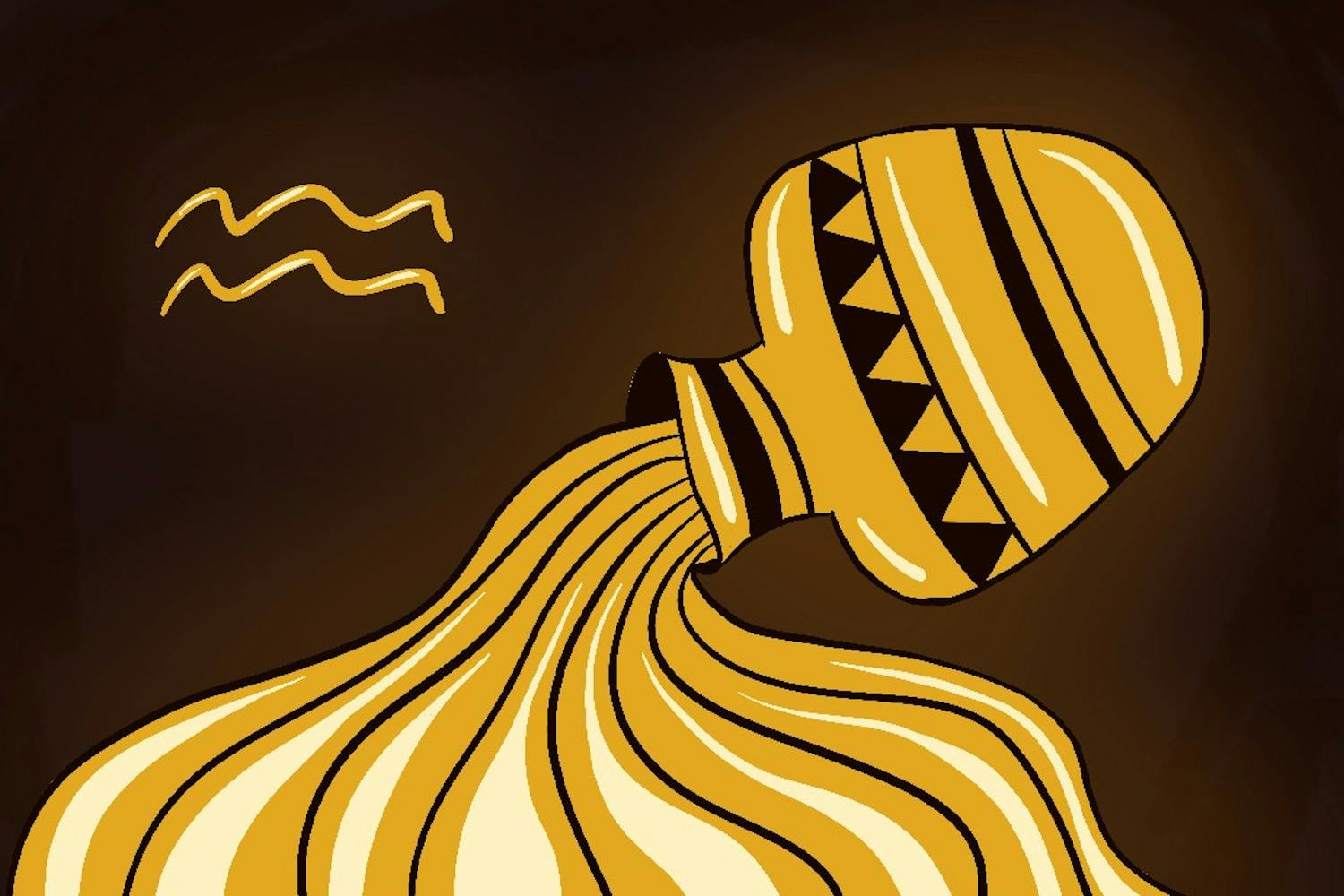Podcaster Raida Khan sits down with musician, photographer and full-time student Russell Prim, AKA Rozotadi. Prim discusses the birth of his student band, Room 4, as well as how he manages to balance his academic life with his creative endeavors.
Raida Khan: I'm Raida Khan with the State Press and today I'm so thrilled to introduce Mr. Russell Prim AKA Rozotadi.
Russell Prim: I am Russell Prim Jr., also known as Rozotadi. I'm an artist coming up in the underground scene of Phoenix. I'm a jack-of-all-trades, master-of-few kind of situation. People know me in the community as a photographer, music engineer, producer and a creative director. I have a rap group as well called Room 4 and we've been doing that since August 12th of 2017. The first day we got to college we made a song. The second day we got to college we made another song. The third day we had a show in front of 200 people and then that just clicked – this can really happen. This is exactly what we've always heard about when we were growing up, so it moves fast and you've got to move with it. Going through that whole first semester, releasing Dorm Tapes Volume One, DTV One – it helped me understand the album process and how much goes into the music, or how much doesn't have to go into the music and just dealing with that while also trying to juggle an intimate relationship with another human being. It was crazy because you're developing and trying to become a man, and you're going through these classes, and you're going through a relationship with a woman, and it's just like – there's a lot to this life thing that I didn't know.
Raida Khan: As someone who does all of these things, what's the secret to balancing school and all of these career paths?
Russell Prim: Number one, you come first.That's your mental health. That's your happiness, your contentedness. How do you feel, right? We want to do so many things for everyone in this world, but first step, how do you feel and what is it that's going to make you feel better? That's what I prioritize.
Also, you have this assignment you need to do. You can't do anything else until you do this assignment because if you don't do this assignment then your grade is going to go down and you want a 3.5 to 4.0 GPA. Are you going to do the work to get that? Everything can fit. Don't take on too much. Know how much you can take. My freshman year, I took way too much. I took way too much and I wasn't doing enough. I can't fall into that trap again.
Last semester I got Dean's List and I've been making some crazy music, so I can say that I'm doing the correct steps. I'm taking the correct steps of prioritization and making sure I'm hitting all the notes. Although I'm a busy person, a lot of people around me are busy too. There's still things that don't always have to be on me and my back. Figuring out what those things are and delegating it. Delegating it to people that can always do it better than you because, yes, I may be a jack-of-all-trades, but being a jack-of-all-trades allows me to know what I want.
Raida Khan: I read on your Google Play [bio] that you were a digital culture major, and now you've switched over to global studies. Why did you do that?
Russell Prim: I got to college and my mentor initially told me, "Don't do something you already do. If anything, add on to your life or find another way to hone down those skills, but don't do something you're already doing. You're going to be in those classes and you're going to be like, 'I already know this.'" I got to college and I was like, "Oh, digital culture and a music concentration. This is going to be very interesting and there's going to be some computer programming. There's going to be some music and other things we're going to touch on." The first semester I was like, "Oh, we're doing storytelling, creative writing, we're getting into the philosophy, we're understanding the informational age, we're understanding how there's people that control our perception of the world and we have to be the ones to be like, 'No, I'm not accepting this. I'm going to create my own perception. Now I'm going to put other people on a pedestal too.'"
Then I got to the second semester and I was doing computer programming but I wasn't feeling that. I was also in some of these media editing classes where the homework was to go home and watch YouTube videos on how to do it. I've lived majority of my life on YouTube figuring out all these skills. Why do I have to pay $10,000 for tuition to go to a class just so they can tell me to watch the same videos I've already watched years ago. I was like, "This is wasting my money. I need to cater to another part of my life."
I'm very interested in history and as a kid I was very interested in wars and the players that fought in these wars. I'd learn the introductory stages of all the languages. I was learning Japanese for the World War II and I learned introductory Italian, German, Russian and French. That was a big part of my life. Being able to do those things shaped me into who I am. Coming to school I fell in love with how much culture that I was exposed to here — not feeling digital culture, I need something that's going to aid me in all my efforts.
Even if I am a musician, even if I am a businessman, I'm going to do global studies and I'm going to do intensive French that's a six credit class. "I'm going to love this." I told myself that. I got into that classroom and we were instantly hitting the ground running in French. Then my other classes, my global classes, are going over the history that I've been learning my whole life, but now, this is the true perspective. This is what these people meant. This is where this ideology started. This is the people that were disenfranchised in history. There's no way of getting around it, aside from moving forward. Taking all these things and it's just like, "Okay, I don't know a lot and I know that I don't know a lot so it's time to figure out everything."
Raida Khan: What would you say is the biggest thing your band have accomplished, or the thing that you guys are most proud of? Whether it's early on, recently, or something you hope to accomplish in the future?
Russell Prim: There's a lot that we're proud of. We've performed over 30 shows together in the last year. We've done Battle of the Bands two times and each time the title has been stolen from us. We were always the crowd's favorite. This last time we lost by one point, but we knew that we gave the crowd something. You may not remember what we said that night, but you'll definitely remember how we made you feel. That's what we're always going for. The fact that we've been able to capture that essence and spread that to different pockets of the valley, that's an accomplishment in itself. We've made people feel something listening and experiencing us. That's dope.
Raida Khan: You're also a solo musician. What are your biggest inspirations and ideas behind your own music?
Russell Prim: This is going to sound cliche, but the world. Inspiration comes from everywhere. I haven't restricted my thought. I'm okay with thinking freely enough to where everything that I consume and intake visually and aurally I enjoy, and I let myself just become enveloped in.
Raida Khan: Do you also reach into your own personal stories – things that have happened to you?
Russell Prim: Yes, I have to because then what I'm saying wouldn't be true and I'm just creating another story of fiction. For example, I have a song called Options. Surface level, it's like, "Oh, he's talking about materialistic things and all this," but then you go another level deeper. You're like, "Oh okay, he's found himself and it's not the materialistic things that make him feel something. It's the fact that he can step out and feel like somebody. Whatever that thing that warrants him to feel like somebody is, no matter what, he's going to be happy and as long as the people around him are happy too, he's good." Documenting this and becoming confident in myself — becoming confident in general – feeling and putting those feelings into the art, into the music. It's special.
Raida Khan: Let's talk about the local music scene in Phoenix. As somebody who is completely illiterate about the music scene that's apparently thriving, what can you tell me about it?
Russell Prim: I've spend a lot of nights thinking about this — building strategies and analyzing all the different facets of this. When it comes down to it, our music scene, just our arts scene in general, is about to explode. We're on the brink of a real renaissance. You know how there's LA, there's San Francisco, there's Chicago, there's New York, Atlanta, Tennessee and all these different music areas. We're about to be the next one. This is the right time — where there's a breath of fresh air to the music industry, as well as people who aren't doing this just to do this, who aren't doing this just for a paycheck. They're doing this because this is what they bleed, breathe and feel. There's a wide diverse range of artists here. If you look hard enough, you could find UK Grime out here in Arizona. There's a big group of punk and hard rock and alternative. You even have your country, you have your acoustic, you have your indie, like Danielle Durack — she's really coming up. Vibe Lane is a rap group out here, along with 20 Pounds, and it just goes and goes. We even have The Color 8, they're a local band. They went on national tour with Futuristic last year, and Futuristic is one of the guys who came up out of here earlier. He was doing the one-take shots and he was rapping. He was starting challenges. He was the nerd who raps in the hood. A lot of people are going remember that.
Lately, the community has been nurturing each other. If you go to First Friday, you'll see exactly what I'm talking about. It's crazy to think that the people that are listening to the music are listening to my friends, my best friends, the people that I've come to love in the last year. We're at a point that you're going to have to listen. You're going to have to feel what we're feeling because we're almost there. We've been developing for almost all our lives and here's our chance to really make something out of this state.
Reach the podcaster at rskhan3@asu.edu
Like State Press on Facebook and follow @statepress on Twitter.




